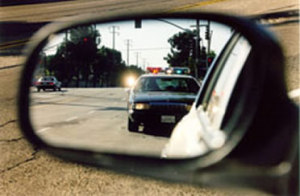Search and seizure issues are normally at the top of the list in any criminal case where physical evidence is recovered from a defendant. Florida law, like federal law, provides protection for citizens against illegal search and seizure. This protection stems from the Florida Constitution and the United States Constitution. At its essence, it is centered on idea that the government needs a good reason to intrude on a citizen’s expectation of privacy. In criminal law, evidence that is gathered in violation of state or federal search and seizure law can be suppressed. A good criminal defense lawyer will always immediately begin this analysis whenever hearing the facts of a new criminal case for the first time.
 Recently, in the case of Cole v. State of Florida, the Third District Court of Appeals (3rd DCA) reviewed a case involving an alleged violation of search and seizure law. Cole was charged with tampering with evidence, trafficking in cocaine, and possession of drug paraphernalia after he was pulled over by a police officer. The traffic stop had been initiated due to a faded temporary tag placed on the car Cole was driving. The defense filed a motion to suppress the evidence that it believed was the result of an illegal search. During the traffic stop, Cole acted nervous, clinched his fists, and held a pen tightly in his hand. He was also sweating and stuttering. The stopping officer believe that the pen could potentially be used and a weapon. She ordered Cole from the car to do a pat down. Florida law allows an officer to conduct a pat down when there is a reasonable suspicion that a person who is being temporarily detained may be armed with a weapon. The court ruled that the pat down was reasonable under the circumstances.
Recently, in the case of Cole v. State of Florida, the Third District Court of Appeals (3rd DCA) reviewed a case involving an alleged violation of search and seizure law. Cole was charged with tampering with evidence, trafficking in cocaine, and possession of drug paraphernalia after he was pulled over by a police officer. The traffic stop had been initiated due to a faded temporary tag placed on the car Cole was driving. The defense filed a motion to suppress the evidence that it believed was the result of an illegal search. During the traffic stop, Cole acted nervous, clinched his fists, and held a pen tightly in his hand. He was also sweating and stuttering. The stopping officer believe that the pen could potentially be used and a weapon. She ordered Cole from the car to do a pat down. Florida law allows an officer to conduct a pat down when there is a reasonable suspicion that a person who is being temporarily detained may be armed with a weapon. The court ruled that the pat down was reasonable under the circumstances.
As Cole was getting out of the car for the pat down, he threw something underneath the car. It was later discovered to be cocaine. During the pat down, something was felt in Cole’s sock, and the officer removed the item. It turned out to be cocaine, as well. The appellate court found that it was wrong for the officer to pull the bulge from Cole’s sock, but found that it would have been discovered anyway after Cole was arrested for the drugs that were thrown underneath the car. This is referred to as the “inevitable discovery” doctrine. The court said that it did not matter that the wrongful search by the officer came before the drugs under the car had been discovered. The appellate court held that the trial court was correct in denying Cole’s motion to suppress.
Having the law work on your behalf in a criminal case can be difficult. Some of the best ways of protecting yourself from what Cole experienced all start prior to a person having an encounter with law enforcement. At the Law Office of David M. Goldman, PLLC, we have experienced Jacksonville criminal defense lawyers that can help you achieve the full protection of the law that you are entitled to receive. Let us help you or a loved one today. Initial consultations are free. Call us today.
 Jacksonville Criminal Defense Lawyer Blog
Jacksonville Criminal Defense Lawyer Blog

